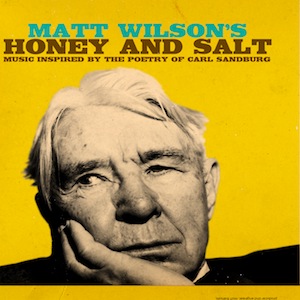Label/Year: Palmetto Records, 2017
Lineup - Fred Hersch: piano.
Open Book is another wonderful opportunity to get in touch with the compelling and always emotional music of Fred Hersch, an established pianist who, playing solo, presents three originals and four selected covers of disparate nature.
The gifted musician confesses in the booklet notes of his 11th solo release that what gives him more pleasure lately is sitting down at the piano and let it flow to see what happens. That’s exactly the sensation we got when this record is spinning. It starts by conveying a delicate intimacy in its opening tune, “The Orb”, an original and very personal composition whose touching lyricism is freed by the magic touch of his fingers as he couples melodic and harmonic richness. Everything is surrounded by a glorious sense of dreaming.
“Plainsong” is another original composition that reflects this state of melancholy, generating an idyllic crossing between jazz and classical genres. Its structure has nothing to do with “Through the Forest”, a ruminative 19-minute free improvisation that explores imaginary paths and trails of a secret forest. There are amazement, abstracted reverie, and dazzle in the depiction, but also mystery and an intermittent tension that is mostly created by the deep-sounding chords unhooked with the left hand.
Jobim’s “Zingaro”, also known as “Portrait in Black and White”, shows up with a heavenly aura, carrying all that crushing sentiment in the beautiful melody and harmonic progression.
Benny Golson’s classic “Whisper Not” is dissected with wisdom and perceptiveness, and then reconstructed with adventurous melodic counterpoint and ruling staccato voicings that, in an early stage, difficult the perception of which tune we are listening to. The main melody only becomes clearly discernible when we reach the final shout chorus.
In turn, Monk’s “Eronel" theme is delivered when most expected. Holding on to its natural bop gaiety, Hersch’s rendition exerts inventive rhythmic variations, stout phrases enriched with exciting passage notes, and attractive motifs. It diverges from Billy Joel’s lyric poem “And So It Goes”, which, interpreted with elegance, closes the album with a romantic touch.
As a curiosity, the previous solo album by Fred Hersch, precisely entitled Solo, also included one Jobim and one Monk song, and closed with a pop/rock piece, in the case, Joni Mitchell’s “Both Sides, Now”. Regardless the observation, Open Book is another story and a wonderful one, replete with fantastic moments that should be enough to make you exploring it with no reservations.
Grade A
Favorite Tracks:
01 – The Orb ► 02 - Whisper Not ► 04 - Through the Forest








































